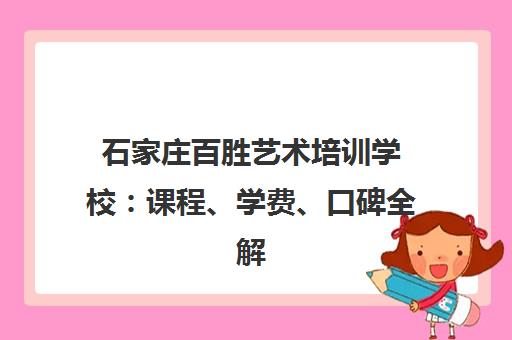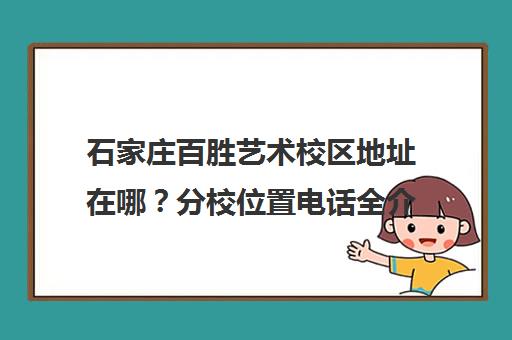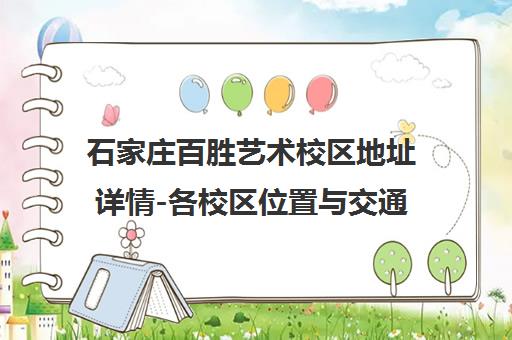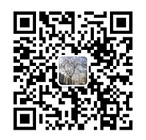踏入考场,首先需妥善安放携带的文具(建议至正规商场、文化大楼或专业文化用品店购买正品中华牌2B铅笔,至少备两支,削好),以及橡皮、小刀(试卷和答题卡均封于小信封内,需小刀裁开),胶水(封信封使用),功能单一的计算器(禁止携带具备存储、查询功能的电子辞典式计算器),身份证、准考证、学生证(仅限本校考生,社会考生无需携带),实体手表(非手机),水性笔(推荐使用黑色中性笔,若偏好钢笔或圆珠笔,亦可,但需确保钢笔不渗墨,蓝黑色钢笔亦可,但建议避免纯蓝色,字迹过轻,易辨认不清)。

注意事项:
1. 若为英语考试,建议携带一张无缺角的整张白纸(仅限草稿,不可书写),因考试不提供草稿纸。否则,草稿只能写在准考证或客观题卷纸后。请确保纸张完整,否则可能被视为作弊。
2. 小刀和胶水通常由考场提供,但为防万一,建议考生自备所有物品,若有其他需要,请一并携带。
3. 手机等通讯设备严禁使用,强烈建议关机。若设置为震动,亦不可携带在身上,一旦发现,将按作弊处理,试卷得0分。
4. 计算器功能宜简单,如卡西欧多功能计算器亦可使用。计算器在专业课二上使用较多,其他科目一般无需计算器,可手算。
5. 除外语考试需自备白纸外,其他考试考场均提供草稿纸。
6. 笔的颜色无特定要求,通常蓝色、黑色均可。判卷老师个人喜好属主观因素,对成绩影响不大。请根据个人喜好选择笔色,红色笔建议避免,以免与判卷老师判卷颜色冲突。
考前准备:
进入考场前,请关闭手机等通讯设备,并尽量避免携带身上。考生按桌面上小牌子对号入座,将无关物品放在考场前方。监考老师宣读考场规则和注意事项。核对身份证、准考证等证件无误后,发放固体胶棒(各地规定可能不同,建议自备)。展示试卷密封大信封袋,表示考前未开封。裁开信封,取出考生考试信封袋,标注准考证号码、姓名和座位号。信封开口方向需仔细查看(监考老师会告知),切勿裁错方向。检查信封内物品,确保无误,切勿急于看题,仔细听监考老师讲解。填写卷纸和答题卡,注意答题卡上的文字书写部分需使用中性笔或水性笔,防止篡改。
注意事项:
1. 仔细听从监考老师的安排和嘱咐,切勿急于做题,以免分心犯错。
2. 注意信封开口方向,切勿草率裁开信封。
3. 划信封时勿用力过猛,信封内纸舌头用于最后粘合信封,动刀前务必看好。
4. 考试可用钢笔、水性笔(中性笔)或圆珠笔回答主观题,颜色可选蓝色、蓝黑色、黑色等。判卷老师不会因字体颜色而加分或减分。建议准备2-3支颜色相同、同一品牌的笔,如晨光等知名品牌;圆珠笔需注意防止掉珠等问题。
正式考试:
了解考场规则至关重要。以下注意事项供参考,若认为不够充分,请补充评论,我会不断完善帖子内容。
注意事项:
1. 考场提供的草稿纸问题。英语和政治考试一般不提供草稿纸,数学和专业课考试则提供。使用钢笔运算时,建议使用中性笔等,以免渗墨。
2. 英语答题卡。考研英语答题卡分为客观题和主观题两部分。客观题答题卡与四六级考试类似,主观题答题卡需注意合理安排空间,确保字迹清晰,卷面整洁。
The issue of the English exam in the postgraduate entrance examination is a topic of great concern for many candidates every year. The separation of this issue from the previous ones is also due to the consideration that the CET-4 and CET-6 exams are different from the postgraduate entrance examination. In the CET-4 and CET-6 exams, the objective questions and answer sheets are handed in first, while the subjective questions and answer papers are submitted last. This differs significantly from the postgraduate English exam. During the entire postgraduate English exam, the invigilators have no right to touch your answer sheets and exam papers. This is where the envelope comes into play. The envelope is opened and sealed by you, and all the materials are handed over to you intact, just as they are handed over to the invigilator. This is all your responsibility, and has nothing to do with the invigilator. Therefore, the invigilator has no right and no need to touch your exam papers. It is clear, then, that there is no need to separate the answer sheets and exam papers for submission, nor is there a need to submit them in different stages. Everything is governed by the bell. The exam begins with the sound of the bell, and all the questions in your envelope are handled by you. The bell rings to end the exam, and it is also you who personally place all the submitted exam papers into the envelope, seal it, and hand it over to the invigilator.
Regarding the answers to various subjects:
(1) Political objective questions are answered on the answer sheet, while subjective questions are answered on separate answer papers. It is recommended to control the word count when answering subjective questions. Many candidates mistakenly believe that the more words they write, the higher their score should be. This is actually not the case. The marking teachers have to read a large number of papers every day, and if the writing is untidy, it will not be advantageous in scoring. Moreover, the scoring is based on the points scored, and if there is no use, no matter how many words you write, you will not score. This leads to a tense and untidy paper, and it is possible that the marking teachers will not find the points to be scored. It is recommended that when answering subjective questions, you should consider the questions in advance and find the points to be scored before writing. Do not start writing without fully considering the question, as this will only result in writing many unnecessary words that the marking teachers will find烦扰. For the last optional question, based on past experience, the questions on world political situations are mostly chosen, and they are relatively easy to score. The second optional comprehensive question is more difficult to grasp the scoring points. With less than two weeks left for review, it is recommended that candidates refer to the optional questions of recent years' true questions to find easier scoring methods.
(2) English, see points 2 and 3 above.
(3) Mathematics: There is no answer sheet for the mathematics exam, and the answers to multiple-choice questions are filled in on the exam paper. Pay attention mainly to the answers to the subjective major questions. Try to arrange the space for answering as much as possible. If you don't know how to answer, you can put it aside first and come back to it after answering all the questions. It is strongly recommended that if you can't think of the answer to a multiple-choice or fill-in-the-blank question within three minutes, just give up. If it is a multiple-choice question with options like A, 0, B, 1, C, 2, D, 3, etc., choose the answer with 2 (I emphasize this: this is when you are really at a loss, and encounter such questions, just guess an answer with 2). In summary, do not let the time spent on multiple-choice and fill-in-the-blank questions affect the later major questions, as many major questions are still relatively simple. It is strongly recommended that when answering major subjective questions, you must learn to give up questions you can't answer or temporarily give up questions you can't answer. Do not spend too much time thinking about one question, as this may lead to the inability to answer questions in probability and linear algebra, etc., at the end. In fact, the questions in probability and linear algebra are relatively simpler, and the types are easier to have encountered. Therefore, do not waste time on one question and miss the opportunity to score 20-30 points on the later parts. Every year, many candidates make this mistake in the postgraduate entrance examination.
(4) Professional subjects: I would like to emphasize that for subjects that require calculators, it is necessary to prepare a calculator, as it can be very麻烦 to forget it. The questions in professional subjects are generally answered on separate answer papers. If there are optional questions on the professional subject questions, it is recommended that candidates clearly indicate which part of the optional questions they have chosen. I have a method, for example, if there are 12 multiple-choice questions and only 10 are required to be chosen, you can do it like this: on the answer paper, write the numbers of the two non-optional questions normally, and then mark an X in the position where the options are normally filled in, and indicate that this question is not optional. If it is a major question, such as 5 major questions, and you choose to do 4 questions, you can mark the non-optional questions in the most noticeable position to inform the marking teachers of the professional subjects. When answering professional subjects, personal favor can account for a significant proportion of the score, such as the neatness of the paper and the clarity of the handwriting, which can all help to increase your professional subject score. If you have a professional subject question that you don't know how to answer, it is also recommended that you write down the possible or thinkable ideas and formulas, and make some necessary explanations or calculations, etc., which may give you some points from the marking teachers.
7. Exam Completion
After the completion of a tense exam, there is still much work to be done. First, seal your envelope, place all the necessary items into the envelope according to the invigilator's requirements, check for accuracy, and then seal the envelope. Attach the sealing sticker. Then wait for the invigilator to collect it.
The remaining tasks are to leave the exam hall in an orderly manner. Some netizens have left some examination supplies behind in a hurry, causing a lot of trouble to the normal examination. It is recommended that when preparing to leave the exam hall, you check the desk and the ground around the desk for any dropped items, and check that your documents (admission ticket, ID card, and possibly a student ID card) are in place, and then take all items with you when leaving the exam hall.
8. Drinking and Eating Issues
It is recommended that candidates do not drink water during the exam. However, I highly recommend a method to stay alert: there are many drinks on the market that have a brain-awakening effect, such as Red Bull. You can buy these drinks with brain-awakening effects in regular large supermarkets and drink them half an hour before the exam, which can help relieve the tension and stress of the candidates and can also help to stay alert. Although it may not necessarily make you perform exceptionally well, it can at least reduce the likelihood of performing poorly. Regarding dietary issues, I have the following suggestions for different candidates, hoping they will be helpful.
1. Try to eat less of the food that is easy to cause stomach problems, such as milk and spicy food (such as instant noodles).
2. Try to have meals on time, and those who don't eat breakfast in the morning should change this habit temporarily.
3. It is recommended to eat some nuts such as walnuts, which can help improve memory, but do not eat too much.
4. It is recommended to eat eggs for breakfast, and scrambled eggs are the best.
Hello everyone, I am Benny, the founder of Yuyi Classroom. The "Double Reduction" policy implemented in September 2021 has been a storm for extracurricular training institutions. The 8 major and 30 minor items, and the 7 key measures, each directly hits the bottleneck of the 700,000 extracurricular training institutions. During the pilot period, some cities even included extracurricular training in the category of "black and evil crimes" and "eradicating pornography and illegal publications." Faced with the closure and bankruptcy of a large number of extracurricular training institutions, one cannot help but worry about where those once glamorous extracurricular training teachers will go now.
Live streaming sales
The most influential one is the founder of New东方, Yu Xintao, who has "cut off his wrist," on one hand donating desks and chairs to teaching points and formally saying goodbye to the era of extracurricular training, and on the other hand, establishing a large agricultural platform, where he and hundreds of teachers engage in live streaming sales to help sell agricultural products. I believe that with Yu Xintao's reputation and wisdom, he will ultimately lead his teachers to successfully transform and overcome difficulties.
Return to in-school teaching
I have a student who teaches Chinese in a key high school in the county. She is a well-known teacher with teaching skills that almost always hit the college entrance examination essay topics every year, and she is recognized by both teachers and students as an outstanding teacher. About five years ago, training institutions hired her to teach essay writing for a high salary, but because formal teachers are not allowed to work part-time, she resigned and did very well in training institutions for several years, and also made a lot of money for herself. This year, after the implementation of the "Double Reduction" policy, she went back to her original school through connections, and finally began to focus on teaching within the system.
Transition to private tutoring
I have a daughter who is a student at Capital Normal University and has been doing private tutoring for four years, which has been enough to cover her living expenses each month. Starting in May this year, she started looking for a job, and saw that a well-known training institution in Beijing was hiring teachers with a starting salary of 10,000 yuan per month. She was very excited about it at first. However, she only signed a contract with them for two months before the "Double Reduction" policy came into effect. By this time, the campus social recruitment had ended, and although she didn't find a suitable job for a while, young people like her didn't care. She still had connections with the parents and students she had taught in university, so naturally, she decided to continue doing what she was good at, and continue to do one-on-one private tutoring at home. She still charges the same as she did in university, 300 yuan per two hours, one in the morning and one in the afternoon, and easily earns 600 yuan a day, which she feels is better than working.
Reemployment or postgraduate and civil service exams
More people have to find other ways out, some find a way into companies or become substitute teachers, some young people prepare to take postgraduate or civil service exams, some wealthy people prepare to open restaurants or other businesses, and those with less wealth or older people prepare to retire. A relative of my colleague, who is in his 50s, suddenly lost his job and couldn't find a job, but he was still far from retirement, so he started driving for Didi.
Unemployment and idleness
...
我家乡有一位女孩,实则已年满38岁,然而因她未婚,身姿和容貌依旧清新甜美,我常将她视为年轻姑娘。她曾在京城的一所大学求学,毕业后加入了一家国有企业担任文员,住在单位的宿舍中,每月的实际收入仅2000元左右。如此过了五六年,她跳槽至北京一家颇具知名度的培训机构,但由于缺乏教学经验,她只能担任前台接待。每月的实际收入增至6000元,尽管租房仍是合租,月租3500元,但她仍觉得满意,至少在外人面前提及自己的薪水更有面子。然而,随着培训机构的倒闭,她这个年纪和专业在寻找伴侣或工作时都显得有些尴尬。目前她已经失业三个月,整日窝在出租屋中,不谈婚事,也不积极找工作,只是沉迷于追剧和刷抖音。她的父母为此焦急万分,经常打电话给我,询问是否可以劝说她回到家乡。
世间事,十之八九不如意,时代的尘埃落在每个人的肩上,都仿佛是压顶的大山。
幸运的是,这依然是一个相对较好的时代,并不是一个埋没人才的时代。只要真正具备能力,或者愿意吃苦耐劳,还是可以在这个社会中生存下去的!












